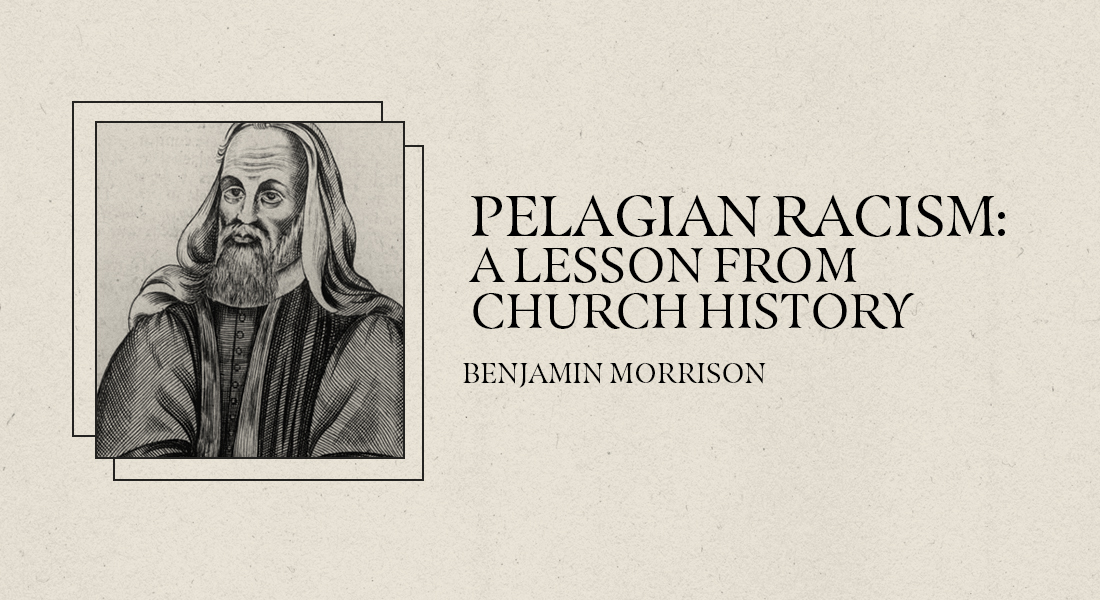
“I don’t hate black people, so I’m not part of the problem. Racism is bad, but it’s an individual sin that some people commit. I’m not one of those people, so why am I being held responsible for other people’s racism?” Since the beginning of the protests in the wake of George Floyd’s murder, I’ve seen variations of the above comment again and again, including from a number of white pastors. A common addition is an accusation of “cultural Marxism” whenever the idea of systemic racism is broached. It’s a valid question, and I hope my words might help to shed some light.
I know it’s hard to listen to positions that are not comfortable for us. Perhaps you’ve made comments similar to the one above. Perhaps you feel confused or even offended by all the talk of systemic racism. More specifically, maybe you’re put off by the idea that you are somehow complicit in systemic racism. After all, you love Jesus; you try to love everyone and hold no ill will against people of any color. Maybe you even have some friends who are black, Latino, etc. I hope to show in this article that systemic racism is not a Marxist invention, but rather a valid category based on the biblical doctrine of sin. And therefore it’s one we need to consider seriously.
A Church History Analogy
Let’s start with an analogy. Some readers will be familiar with the name Pelagius. For those who aren’t, Pelagius was a monk from the British isles who taught around the turn of the 5th century A.D. Pelagius is infamous for denying the doctrine of original sin. He taught that Adam’s sin led only to Adam’s personal fall. While that provided a bad example to the rest of humanity, each person is sinful only if they commit sins personally. In other words, Pelagius denied any kind of inherent or systemic sinfulness in mankind. Pelagius and his teaching were condemned as heretical at the ecumenical Council of Ephesus in 431 A.D.
In contrast to Pelagius, the Bible teaches that sin is more than just our individual transgressions. It’s also a state into which we are born. It’s something inherently passed on to us by our ancestors. Sin is something inculcated into us by a fallen society before we’re even capable of conscious choice. Thus, it is accurate to say that sin, in the biblical view, is both individual and corporate—or systemic. We can see this relatively easily if we stop to consider an example.
A Sin-riddled System
Let’s consider a favorite sin of modern western society: materialism. Greed is part of the sin nature we’re born with. Those of us with children know this. No one has to “teach” a toddler to want more things or want what others have. It’s innate. At the same time, that child—and all of us—are born into a culture that quietly celebrates materialism. Even if we reject the brash motto of “greed is good,” we are still part of a system that pushes us towards greed in innumerable ways. Commercials and marketing add fuel to the fire to convince us that what will make us happy is more stuff.
Of course, we are skilled at self-justification—another effect of our sin nature. We tell ourselves that we’re not greedy. After all, we’re not stealing. We’re not neglecting our family and health to get rich—most of the time. We’re not taking part in ethically dubious schemes to accrue wealth at the expense of those with less. We just want a little more—and that seems reasonable, not greedy. John D. Rockefeller was purportedly interviewed once when he was literally the richest man in the history of the world. The interviewer asked him, “How much money is enough?” His answer is profound and somewhat convicting. He replied, “Just a little bit more.”
We are prone to deny our materialism because we’re not committing brazen, conscious acts of greed. But given the culture that we find ourselves in, and our inherent sinful inclination, the question we ought to be asking is, “How much greed is in my heart?” To deny its presence entirely is to admit that it has quite a firm hold on us. The truth is that we could do a similar analysis with any sin: lust, pride—or racism.
A Pelagian View of Racism
It seems that in the current discussion on systemic racism, a number of white Christians are committing a doctrinal error similar to Pelagius. Far from being a product of “cultural Marxism,” the systemic nature of racism proceeds from the systemic nature of sin itself. Few, if any, readers would argue with the conclusions of the Council of Ephesus that Pelagius was promoting a shallow, hyper-individualized, and unbiblical view of sin. And yet the question we should ask ourselves is: “Am I holding to a Pelagian view of racism?”
One fundamental mistake Pelagius made was relegating sin to only the realm of individual, conscious acts. While personal transgression is certainly part of the definition of sin, it is not the only part. Sin is much more pervasive. It goes much deeper, to the very fabric of our nature and society—just like racism.
Some current popular rhetoric tells us that, “No one is born a racist.” And yet, as with the example of greed, no one has to teach a toddler to look askance at someone of a different race and think, “That person doesn’t look like me—are they safe?” It is likely a rotten fruit of our inherent self-righteousness that the less like us someone seems, the more suspicious we are of that person.
Moreover, as with greed, we are all born into a culture that still promotes racism in numerous ways. This is evidenced in everything from policing practices1 to wage disparity2 to educational opportunities.3 The current push to confront racism openly in society is a start in the right direction, but it is not enough to undo centuries of egregious oppression of other humans based only on the color of their skin.
So while we might not be personally guilty of brazen, conscious acts of racism, that does not mean that we are not complicit in overall systemic racism. We are born fallen into a fallen system, which means there are myriad ways this inherent racism has affected us, and even many ways we participate in it. As with the example of greed, the question we ought to be asking ourselves is, “How much racism is in my heart?” To deny its presence entirely is a sign that it still has a firm hold on us.
How Should We Move Forward?
The first answer to this is personal prayer and repentance. We must ask the Lord to discover in our hearts the ways that we have absorbed and been complicit in racism, even if we would never think of ourselves as openly hostile to people of other races. We might be hesitant to do this. Perhaps we feel ashamed or afraid of the possibility that the Lord might reveal something. But the good news of the Gospel is that Christ took our shame on himself. It is because of grace that we can practice deep, sincere repentance without fear.
However, beyond dealing with our own hearts, how should Christians seek to address systemic racism? I’ve seen one line of reasoning almost as frequently as the denial of systemic racism: “Even if there is systemic racism, only the Gospel can change hearts. Therefore, we should focus on preaching the Gospel and not concern ourselves with addressing systemic racism.” I will deal with this line of reasoning in a follow-up article.
Notes:
1Hall, A. V., Hall, E. V., & Perry, J. L. (2016). “Black and blue: Exploring racial bias and law enforcement in the killings of unarmed black male civilians” [Electronic version]. Retrieved June 27, 2020, from Cornell University, SHA School site.
2“Stark black–white divide in wages is widening further,” Economic Policy Institute, accessed June 27, 2020.
3Quinn, David M.. (2020). “Experimental Effects of ‘Achievement Gap’ News Reporting on Viewers’ Racial Stereotypes, Inequality Explanations, and Inequality Prioritization”. (EdWorkingPaper: 20-237). Retrieved from Annenberg Institute at Brown University.
Further Reading:
Alexander, M. (2020). The New Jim Crow: Mass Incarceration in the Age of Colorblindness (Anniversary ed.). The New Press.
Schoenfeld, H. (2018). Building the Prison State: Race and the Politics of Mass Incarceration (Chicago Series in Law and Society) (1st ed.). University of Chicago Press.
Rothstein, R. (2018). The Color of Law: A Forgotten History of How Our Government Segregated America (Reprint ed.). Liveright.
Darby, D., & Rury, J. L. (2018). The Color of Mind: Why the Origins of the Achievement Gap Matter for Justice (History and Philosophy of Education Series) (1st ed.). University of Chicago Press.
While the following resources provide much excellent content, they are not written from a Christian perspective. Therefore, as always, read with readiness to learn, but weigh all things according to Scripture. CalvaryChapel.com does not necessarily endorse or agree with every message or perspective in the diverse resources listed. By providing these resources, we hope to help you stay informed of important events and conversations taking place in the world that are relevant to the Christian faith.






